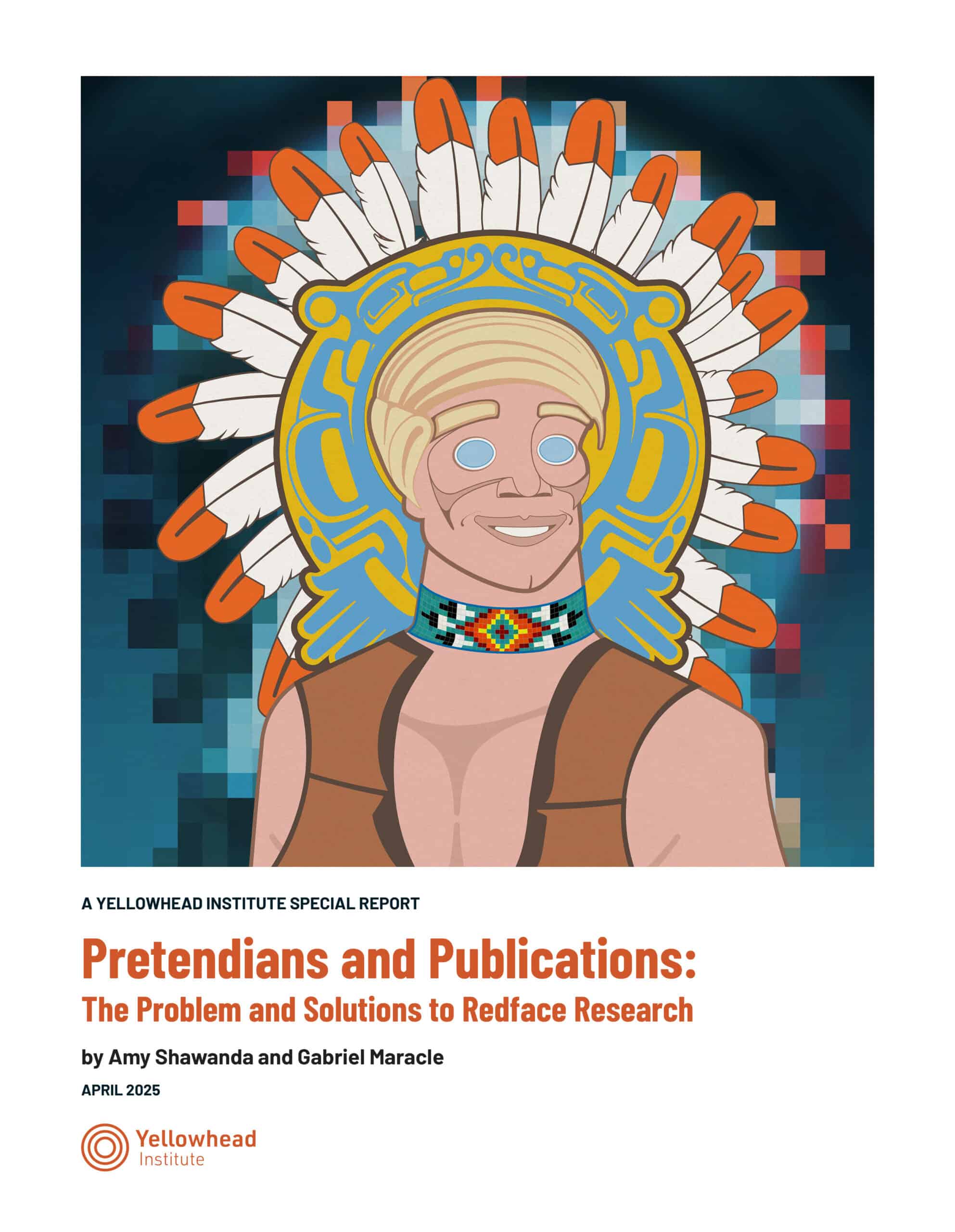- About
- Research
-
-
- Special Reports & Features
- Braiding Accountability: A Ten-Year Review of the TRC’s Healthcare Calls to Action
- Buried Burdens: The True Costs of Liquified Natural Gas (LNG) Ownership
- Pretendians and Publications: The Problem and Solutions to Redface Research
- Pinasunniq: Reflections on a Northern Indigenous Economy
- From Risk to Resilience: Indigenous Alternatives to Climate Risk Assessment in Canada
- Twenty-Five Years of Gladue: Indigenous ‘Over-Incarceration’ & the Failure of the Criminal Justice System on the Grand River
- Calls to Action Accountability: A 2023 Status Update on Reconciliation
- View all reports.
- Special Reports & Features
-
-
- Yellowhead School
-
- The Treaty Map
- LIBRARY
- Submissions
- Donate
Indigenous Studies, as a discipline, has rapidly grown in the past few decades. Yet a troubling trend has more recently emerged: the rise of “pretendians” — individuals fraudulently claiming Indigenous identity and misrepresenting Indigenous research, threatening the integrity of Indigenous Studies broadly.
Pretendians and Publications: The Problem and Solutions to Redface Research examines how academic pretendians distort research, misappropriate resources, and undermine the goals and values of authentic Indigenous communities. These authors also look at how the institutions that shape the academy nurture and perpetuate this phenomenon. Who truly belongs? is a more urgent question than ever. Pretendians exploit these institutions, weak identity verification processes, and insufficient cultural competence in research, funding agencies, and ethics boards. The report argues for more rigorous, community-led identity verification, with Indigenous voices guiding these policies. It emphasizes the need for culturally competent data collection practices to ensure research is both authentic and accountable. This work is a call to action to more formally challenge the academy to address these harms — not just through policy enforcement, but by safeguarding Indigenous self-determination and communities themselves from exploitation. Institutions and individuals must take responsibility for preventing identity fraud and championing the authenticity and dignity of Indigenous peoples.
KEY QUESTIONS
How does the phenomenon of pretendianism undermine the integrity of Indigenous knowledge and perpetuate settler-colonial frameworks in research, scholarship and academia more broadly?
How can academic institutions take meaningful accountability for their role in perpetuating “red-faced research” while simultaneously supporting Indigenous-led research?
Indigenous Studies, as it’s expressed in the contemporary academy, is relatively new. Driven by growing numbers of Indigenous students and the re-articulation of Indigenous research methods and pedagogies, there is now a critical mass of Indigenous scholars in Canada. But there is a preoccupation among those scholars: Who among us actually belongs?
- Amy Shawanda and Gabriel Maracle

